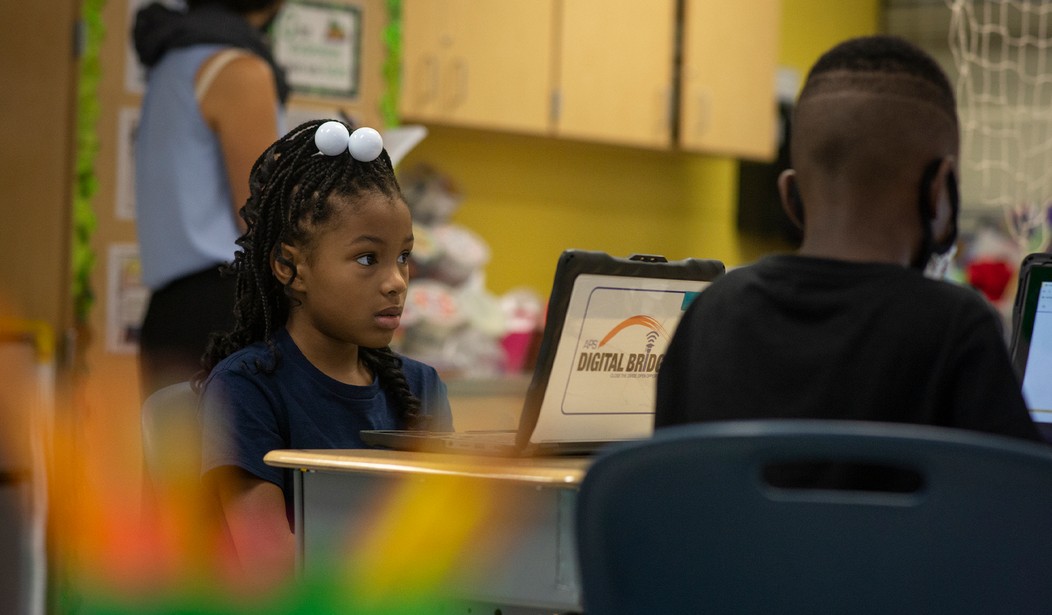Since the pandemic exposed the corruption and decline of public schools throughout the country, school choice programs have become more popular than ever, especially among lower-income families who typically cannot afford to send their children to non-public schools. This has led to states passing an avalanche of school choice bills, with some even offering universal school choice via education savings accounts.
While the sudden rise in school choice programs is welcome news for many Americans, there has also been a backlash in several blue states, where lawmakers and teacher unions are scrambling to prevent school choice from gaining a foothold.
Take Illinois for example, where state lawmakers recently axed the Prairie State’s lone school choice program: the Invest in Kids Act, which the Illinois Legislature passed in 2017. The measure allowed private donors to provide money to six state-approved private school scholarship funds in exchange for a tax credit. Since its inception, the program has granted 40,940 private school scholarships. This year alone, the program has awarded scholarships to 9,656 students.
Most of the students who have received scholarships from the Invest in Kids Act reside in Chicago. More than half are black or Hispanic. And, all students receiving scholarships live in households that have incomes below 300 percent of the federal poverty level. In other words, the Invest in Kids Act was specifically designed to lend a helping hand to families living in poverty-stricken neighborhoods, where local public schools are failing to keep students safe and academic achievement is lagging.
According to a recent poll, 63 percent of Illinois voters support the Invest in Kids Act, including 67 percent of Independents and 60 percent of Democrats. Nearly seven in 10 black and Hispanic voters also support the program, which will end at the close of 2023.
Recommended
As expected, most of the pushback to extending the Invest in Kids Act beyond 2023 came from teachers unions. For instance, Illinois Education Association (IEA) President Al Llorens celebrated the decision to sunset the program, saying, “It is a new day in Illinois. We are incredibly grateful to our lawmakers for choosing to end the voucher scheme known as Invest in Kids. This program sent millions of taxpayer dollars to private schools and was created under the guise of helping students of color, but we now know the funds went primarily to white students.”
Likewise, the Chicago Teachers Union applauded the decision to end the program, calling it “a significant milestone in the fight for anti-racist, gender affirming, pro-immigrant, equitable and fully funded public schools.”
In blue states like Illinois, teachers unions wield vast power and they are unafraid to exercise that influence, especially when it comes to dismantling competition from non-public schools.
Unfortunately, the teachers unions’ war on school choice produces collateral damage that has a disproportionately negative impact on low-income families who remain stuck in poor-performing and unsafe public schools.
The teachers unions incorrectly claim that voucher programs like the Invest in Kids Act diverts money from public schools, which they constantly claim are woefully underfunded. However, this is simply not true. Illinois public schools spend, on average, nearly $18,000 per pupil whereas the private school scholarships granted under the Invest in Kids Act averaged $5,900 per student. Since the Invest in Kids Act was passed in 2017, Illinois has increased public school funding by more than $2 billion. Moreover, Illinois spent $39.1 billion on public education last year, of which 99.8 percent was allocated to public schools and 0.2 percent was left for school choice.
And, if non-public schools are such a threat to the very existence of public schools, why do 39 percent of Chicago public school teachers send their own children to private schools? Illinois Gov. J.B. Pritzker, who voiced opposition to the Invest in Kids Act after initially supporting its extension while campaigning, along with many of his Democrat colleagues in the Illinois Legislature, also send their children to private schools. What’s good for the goose is good for the gander.
In Illinois, approximately 85 percent of students attend public schools, but only 38 percent of families think K-12 public education is “headed in the right direction.” Based on the results 2023 Illinois School Report Card, which shows Illinois public schools are failing miserably to properly educate the next generation of Illinoisans, this is hardly surprising.
The solution to a deteriorating public education system, which has operated as a near-monopoly for decades in Illinois, is more, not less, competition. All Illinois families, regardless of their household income, deserve the chance to send their children to the school that best fits their unique needs and circumstances, whether that be public, private, or charter.
Chris Talgo (ctalgo@heartland.org) is editorial director at The Heartland Institute.

























Join the conversation as a VIP Member